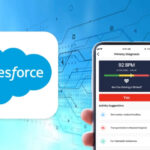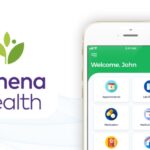We are approaching yet another threatened US government shutdown. In the virtual physician lounge this weekend, the hot topic was the telehealth mess that a shutdown would create.
Congress has not agreed on temporary funding for that modality, and the deadline is Tuesday at 11:59 p.m. Last Friday at 5 p.m., a colleague at a local institution received a message from the “administrator on duty” that encouraged clinics to move telehealth visits to in-person types. The timing shows little understanding of how medical offices run. Hordes of schedulers are not standing around at the end of the workday looking for things to do.
My colleague also lacks space in the clinic to convert those visits to in-person since his telehealth hours overlap with times when three other clinicians are occupying the practice’s exam rooms. Rescheduling into available space would require double-booking, which harms both the clinician and care quality, or pushing patients four or more months out.
US healthcare decision makers often miss the value of long-term policy and the realities of frontline delivery. A quote from one of my favorite movies is street racer Dominic Toretto saying, “I live my life a quarter mile at a time.” Many of us in the US healthcare system are unfortunately living our lives one Congressional budget cycle at a time.
I envy other parts of the world that take a longer view in the policy process. It’s not only in healthcare. As an avid outdoor enthusiast, I recently read an article about New Zealand and its 50-year plan to control invasive wild pine trees. The country has reached a consensus on the hazard that specific pine species create. It is working in a coordinated way to manage the issue while limiting the cost of the program and protecting the specific segments of the economy that would have been negatively impacted by expanding invasive species.
It’s the old “ounce of prevention” adage that makes both logical and financial sense, but is often lacking here in the US. Just thinking of some of the healthcare policies I’ve seen during my career makes me cringe. Medicare at times wouldn’t pay for diabetic testing supplies, which can help patients manage their blood sugars and prevent complications However, they would pay for the complications. That makes no sense at all.
I’ve spent the last couple of decades working on projects using Lean methodologies and creating cultures where continuous improvement and long-range planning is the norm. I’ve attended countless courses that addressed building high-performance teams and figuring out how to achieve consensus and move forward around specific clinical goals.
I’ve seen that mindset do amazing things in healthcare organizations. I have watched teams continuously deliver results that initially seem impossible, to the credit of the principles of incremental change as part of a bigger effort, continuous improvement, and having a genuine desire to make things better. It’s been a privilege to work on so many high-performance teams, although I’ve certainly worked on some that haven’t been models of peak performance.
The most challenging teams I’ve worked on have been those that set ambitious goals without curating the teams that are charged with meeting them. They may take an existing team and assign tasks on top of their regular responsibilities, which isn’t a recipe for success.
Another common pitfall is to expect the team to not only be good at their principal areas of expertise, but also to be great at project and program management. I’ve seen multiple teams fail when they didn’t have the management support to keep tasks on track, ensure that project milestones were being accomplished steadily, and keep their efforts within budget.
I also see teams that focus entirely on the end point while forgetting that the team is made up of individuals who have needs of their own. Whether it’s a need to understand the “what’s in it for me” related to a project or a need to have some semblance of work-life balance, good leaders make sure that they not only understand the needs of individual team members, but that they are doing their best to ensure that those needs are met.
I feel particularly privileged to be working in my current environment, where the team and its leadership truly care about each other. During my career, I’ve been in plenty of meetings with the usual “what did you do this weekend” kind of small talk while everyone is gathering, but often there’s a sense that people are just talking to fill the time as opposed to really being interested in what is going on in the lives of their colleagues.
I recently had an experience where a colleague reached out on Slack to ask me about a personal event that I had mentioned in small talk several weeks prior, wanting to know how it had gone. I was humbled by that, by the idea that someone would care enough to remember the comment for a couple of weeks (or make note of it) and then take the time to reach out to ask about it. That kind of colleague interaction is worth its weight in gold. It is so different from what I often see elsewhere, which is a group of people just trying to get through the day, week, or month and not really building relationships.
I’m also impressed by leadership that wants to make sure that employees grow regardless of where they are in their careers. It’s common to see professional development for those early in their careers, but by mid-career, sometimes there’s an assumption that we already know what we need to know and just need to go about our work.
I was recently asked to put together a real professional development plan for myself, not just as a box-checking item in the annual corporate process. I was shocked. The idea of getting asked the equivalent of what I’d like to be when I grow up, at this stage of my career, really made me think. I’ve had loads of experiences, but the idea of being able to learn or do things that haven’t crossed my path yet was refreshing. It caught me off guard, and I’ll have to do some focused thinking about the question.
As the new federal fiscal year begins, and as the calendar-year fourth quarter starts for many of us, what is your organization doing to develop and retain people? Leave a comment or email me.

Email Dr. Jayne.
#Curbside #Consult #Jayne #HIStalk







Leave a Reply